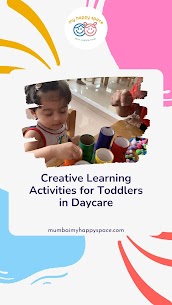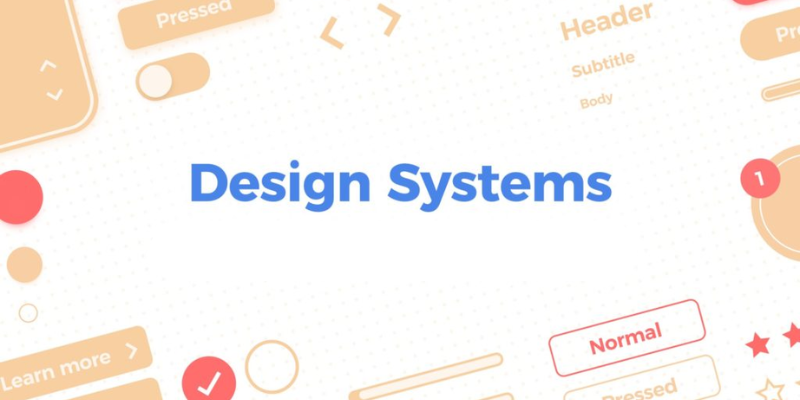Parent-child classes for toddlers are designed to encourage early childhood development through interactive learning and play. These classes provide toddlers with the foundational skills needed for growth while strengthening the parent-child bond. A mother toddler program offers an opportunity to support children’s social, emotional, physical, and cognitive development while allowing parents to actively participate in their child’s learning journey. When considering toddler classes near you, exploring options that emphasize a holistic approach to growth can give your little one the best possible start in life.
What Are Parent-Child Classes?
Parent-child classes are structured sessions that engage both parent and toddler in activities that promote learning, creativity, and play. With age-appropriate exercises, parents help their children develop critical skills. These classes may include art and craft activities, sensory play, storytelling, music, and simple exercises to strengthen coordination. Participating in such classes benefits toddlers’ early development and enables parents to learn new ways to encourage growth outside of the classroom.
1. Encouraging Social Skills and Interaction
At a young age, children benefit greatly from social interactions, but toddlers often don’t have many opportunities to engage with peers. Parent-child classes provide a safe and structured environment where toddlers can interact with other children their age. This social exposure allows them to practice essential skills like sharing, waiting their turn, and communicating with others.
The interactive environment of a mother toddler program provides a social setting where toddlers gain confidence and learn the basics of empathy and cooperation. Children observe and imitate each other, helping them understand and engage in teamwork. These early social interactions lay the groundwork for better social skills, setting toddlers up for a positive school experience.
2. Strengthening Parent-Child Bond
Participating in parent-child classes provides parents with dedicated bonding time with their toddlers. Parents often feel busy and distracted at home, but these classes offer focused one-on-one time that enhances the parent-child connection. When parents actively participate in their child’s activities, they create shared memories that strengthen their bond.
Parent-child classes also give parents insights into their child’s interests and preferences. For instance, if your toddler gravitates toward a specific type of activity—whether it’s building blocks, drawing, or music—you can encourage that interest both during and outside of class. Engaging in these activities together helps parents connect with their toddlers on a deeper level.
3. Building Physical Coordination and Motor Skills
In the early years, motor skills development is a crucial part of a toddler’s growth. Parent-child classes integrate activities that build both fine and gross motor skills. For instance, classes may involve activities like dance, which encourages large muscle movement, or stacking blocks, which improves hand-eye coordination. Participating in these activities with guidance and encouragement from parents gives toddlers a sense of security and boosts their confidence to try new things.
As toddlers build their physical coordination, they become more aware of their bodies. Improved coordination allows them to complete everyday tasks, from buttoning their clothes to feeding themselves. Over time, these simple activities help lay the foundation for more complex physical skills as they grow.
4. Enhancing Cognitive and Language Development
In the first few years of life, a toddler’s brain is highly receptive to learning and development. Parent-child classes stimulate cognitive growth by incorporating learning activities that are fun and engaging. Through storytelling, song sessions, and interactive games, children are exposed to new vocabulary and concepts, building their language and cognitive skills.
These classes also encourage problem-solving and creativity. For example, during a mother toddler program, toddlers may participate in building games where they figure out how to stack blocks without them toppling over. Parents are there to guide, encourage, and celebrate their child’s achievements, making these learning experiences even more impactful.
5. Establishing Routine and Discipline
Parent-child classes offer a structured environment that is beneficial for toddlers, who thrive on routine. By attending classes regularly, children learn the importance of schedules and the comfort that routine can provide. Knowing what to expect at each class builds a sense of security in toddlers.
This routine also helps with discipline as children learn the importance of following instructions, listening to the teacher, and understanding classroom rules. Such discipline positively impacts children’s behavior at home and prepares them for future school experiences.
6. Encouraging Healthy Habits, Including Hydration
Parent-child classes emphasize the importance of healthy habits, which can include physical exercise, learning through play, and good hydration. In active toddler classes, children are often engaged in physical movement that requires staying hydrated. This is a great opportunity for parents to introduce their toddlers to the importance of drinking water throughout the day.
Good hydration supports energy levels, concentration, and mood in toddlers, helping them stay engaged in activities. Teaching children the importance of hydration from a young age sets them up for a lifetime of healthy habits. By reinforcing this in a class setting, toddlers can begin to understand the importance of drinking water to feel their best.
7. Boosting Emotional Development and Independence
Parent-child classes promote emotional development in toddlers by providing opportunities to explore new experiences and emotions. Through activities like painting, sensory play, and group games, toddlers learn to express their feelings in a safe and supportive environment. This is especially important for emotional regulation, as it allows toddlers to experience and manage different emotions with the guidance of both the teacher and their parent.
As toddlers develop confidence and independence, they become more willing to try new activities without needing constant reassurance from parents. This independence builds self-esteem, which is essential for healthy emotional growth. While parents provide a reassuring presence, toddlers learn that they can accomplish tasks on their own, an important skill for both early development and later life.
8. Introducing the Concept of Teamwork
Working together in class teaches toddlers about teamwork and cooperation. Activities that require group participation, like passing a ball or working together on a puzzle, introduce children to the concept of teamwork. These experiences build important social skills that toddlers carry with them as they grow and interact with others.
Parent-child classes provide the perfect platform for toddlers to learn that collaborating with others can be fun and rewarding. Parents can model positive teamwork by encouraging their child, providing support, and helping them understand the value of working with peers.
9. Fostering Creativity and Imagination
Parent-child classes for toddlers often include activities that nurture creativity, such as arts and crafts, storytelling, and pretend play. These activities allow toddlers to explore their imagination and create their own ideas. Creativity is an essential skill that benefits children throughout their lives, fostering problem-solving abilities and self-expression.
Parents participating in these activities show their children that it’s okay to think outside the box. This encouragement helps toddlers develop a love for creativity and exploration. By taking part in creative activities, parents provide support and guidance, inspiring their toddlers to continue exploring new ideas.
10. Making the Transition to School Easier
Parent-child classes prepare toddlers for the transition to preschool or kindergarten by introducing them to a structured environment. In these classes, toddlers become familiar with concepts like following directions, sitting in a circle, and interacting with a group. This familiarity reduces anxiety when they eventually enter a school setting.
Parent-child classes also help parents understand their child’s readiness for school, both socially and emotionally. By observing their child in a classroom setting, parents gain insights into areas where their child may need additional support, making the transition to school smoother and more enjoyable for both parent and child.
Choosing the Right Parent-Child Class for Your Toddler
When selecting a parent-child class, look for one that aligns with your child’s interests and developmental needs. The mother toddler program offers a great option, combining a range of activities designed to foster social, emotional, and cognitive development. Finding toddler classes near you that emphasize a balanced approach, including physical activities, creative expression, and social interaction, will give your toddler a well-rounded experience.
Parent-child classes for toddlers are a valuable tool for early childhood development. They help toddlers build essential skills, improve social interactions, and foster a strong parent-child bond. Through structured activities, children gain the foundational skills needed for success in school and beyond. The time spent together in a class environment enables parents to connect with their toddlers on a deeper level, nurturing their growth and supporting their journey toward independence and self-confidence. By choosing a well-rounded program, you’re investing in your toddler’s future and providing them with the best possible foundation for lifelong learning and development.



